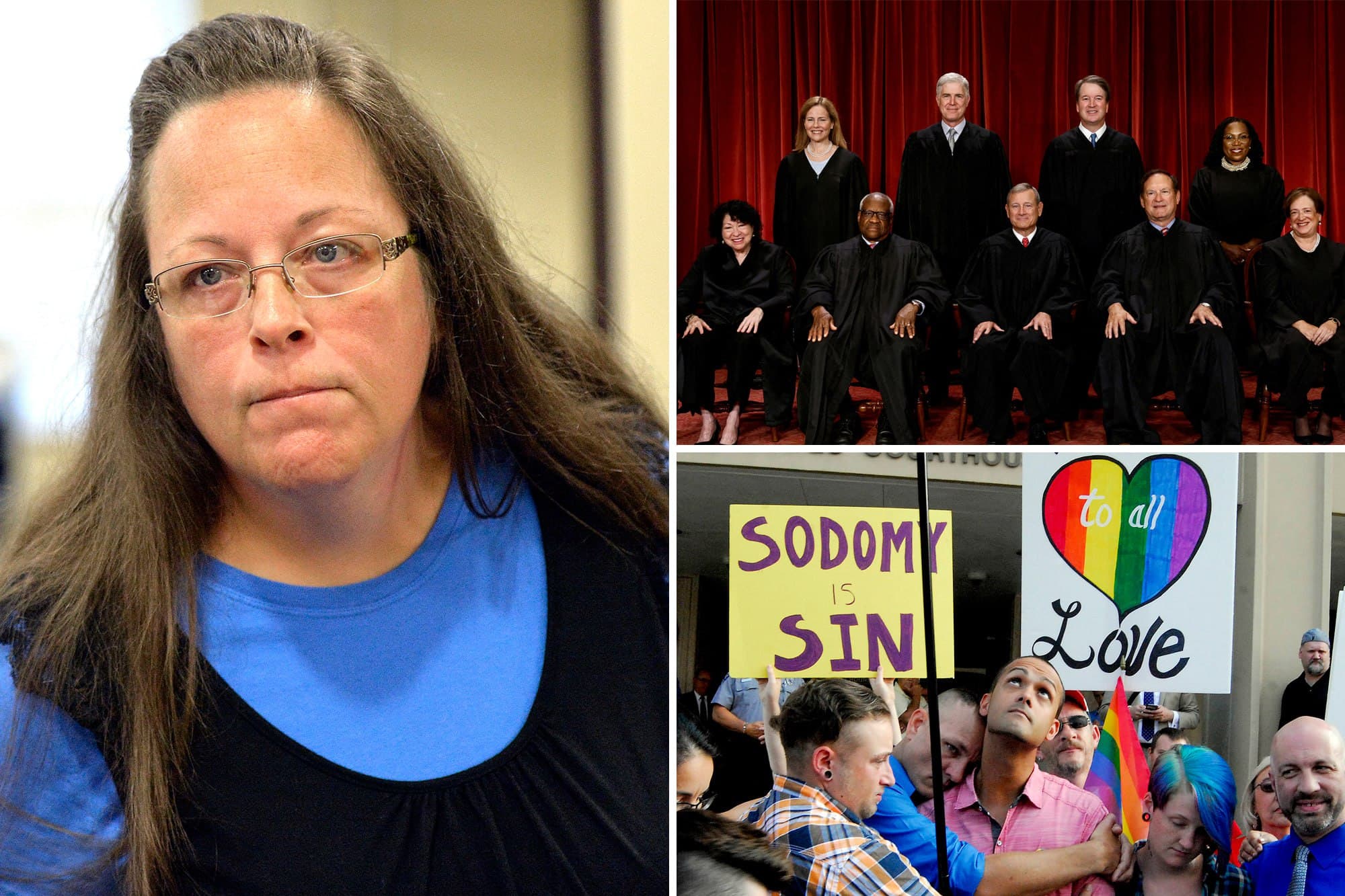Supreme Court to Review Kim Davis"s Bid to Overturn Landmark Same-Sex Marriage Ruling
The U.S. Supreme Court is poised to consider a significant case that could challenge the very foundation of same-sex marriage rights in the United States. Former Rowan County Clerk Kim Davis has filed a petition seeking to overturn the landmark 2015 decision in Obergefell v. Hodges, which granted same-sex couples the right to marry nationwide. This development has reignited debates over religious freedom and LGBTQ+ rights, placing the court at a critical juncture in American civil rights history.
Background & Context
The Obergefell v. Hodges ruling was a watershed moment for LGBTQ+ rights in America, effectively legalizing same-sex marriage across all states. The case stemmed from a lawsuit filed by Jim Obergefell after he was denied a marriage license for his late husband in Ohio. The Supreme Court’s decision affirmed that same-sex couples have the constitutional right to marry, a ruling that has since been celebrated as a major civil rights victory.
Kim Davis, who gained national attention in 2015 when she refused to issue marriage licenses to same-sex couples on religious grounds, has remained a controversial figure. Her actions led to a six-day jail sentence for contempt of court, and she has since become a symbol of the clash between religious beliefs and LGBTQ+ rights. Davis"s petition, filed last month, contends that the Obergefell decision was "extremely erroneous" and asserts her right to practice her religious beliefs under the First Amendment.
Key Developments
Davis"s legal challenge is not merely a personal grievance; it also seeks to overturn a jury"s verdict that awarded $100,000 in damages for emotional distress and $260,000 in legal fees to David Ermold and David Moore, the couple she denied a marriage license. This verdict has been a focal point of her argument, as Davis claims that her religious convictions were disregarded in the court’s decision.
As the Supreme Court prepares to deliberate on whether to take up Davis"s case in a closed conference this fall, the implications could be profound. If the Court chooses to hear the case, oral arguments may occur in the spring of 2026, with a ruling anticipated by June of that year. Legal experts are closely monitoring the situation, as an overturning of Obergefell could redefine marriage rights and religious exemptions across the nation.
Broader Impact
The potential for the Supreme Court to revisit Obergefell v. Hodges raises significant concerns among LGBTQ+ advocates and civil rights organizations. Many fear that a ruling in favor of Davis could pave the way for broader legal challenges against same-sex marriage and other LGBTQ+ rights. This case could also set precedents regarding the balance between religious freedom and anti-discrimination laws.
Experts note that while the Respect for Marriage Act of 2022 protects existing same-sex marriages from being annulled, an overturning of Obergefell could create a patchwork of state laws and rights, leading to uncertainty for same-sex couples across the country. This situation mirrors previous struggles over civil rights, where legal protections were often contingent on state interpretations and local governance.
What"s Next
As the Supreme Court gears up for its fall conference, stakeholders on both sides of the issue are mobilizing. LGBTQ+ advocacy groups are prepared to mount vigorous defenses of the rights established by Obergefell, while proponents of Davis"s petition are rallying support for what they describe as a necessary affirmation of religious liberty.
The outcomes of this case could reverberate throughout the legal landscape, affecting not only marriage rights but also broader civil rights protections. As previously reported, similar situations have unfolded in various states, highlighting the ongoing tensions between personal beliefs and civil rights. The coming months will be critical as the nation awaits the Court"s decision on whether to take up this pivotal case, which may reshape the future of marriage equality in America.

![[Video] Iranian security forces injure woman in Mashhad; death toll exceeds 3,000](/_next/image?url=%2Fapi%2Fimage%2Fthumbnails%2Fthumbnail-1768338642591-z7mptn-thumbnail.jpg&w=3840&q=75)
![[Video] Federal agents drop tear gas canisters from moving vehicles in neighborhood](/_next/image?url=%2Fapi%2Fimage%2Fthumbnails%2Fthumbnail-1768336360849-hrwza-thumbnail.jpg&w=3840&q=75)
![[Video] Protesters surround federal agents at Target in Minneapolis](/_next/image?url=%2Fapi%2Fimage%2Fthumbnails%2Fthumbnail-1768331517834-1384td-thumbnail.jpg&w=3840&q=75)



![[Video] Gunfire between Iraqi security forces and Sadr militias in Baghdad](/_next/image?url=%2Fapi%2Fimage%2Fthumbnails%2Fthumbnail-1768343508874-4redb-thumbnail.jpg&w=3840&q=75)
